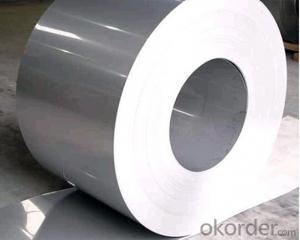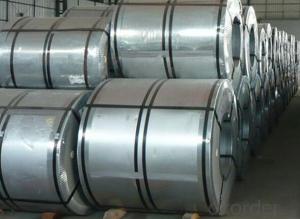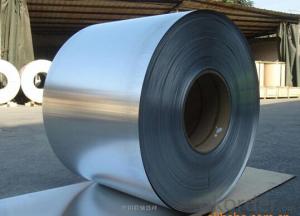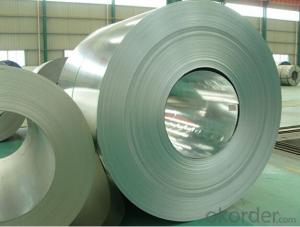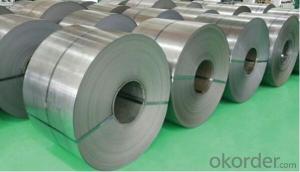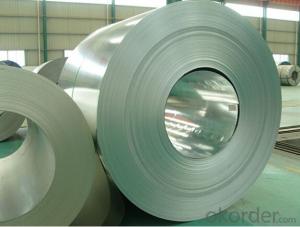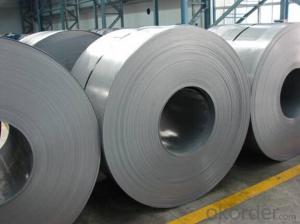Grade JIS G3141-SPCD-SD Galvanized Steel Coil
- Loading Port:
- Tianjin
- Payment Terms:
- TT OR LC
- Min Order Qty:
- 3 m.t.
- Supply Capability:
- 10000 m.t./month
OKorder Service Pledge
OKorder Financial Service
You Might Also Like
Specification
Grade JIS G3141-SPCD-SD Galvanized Steel Coil
Specification of JIS G3141-SPCD-SD Galvanized Steel Coil
1. Galvanized Steel Coil
(1) Width: 600-1570mm
(2) Thickness: 0.13-5.0mm
(3) Grade: JIS G3302-SGCC-SGC570, SGCH (full hard-G550), SGHC-SGH540
EN10346-DX51D+Z, DX53D+Z, S250GD-S550GD
ASTM A653-CS-B, SS255-SS550
(4) Zinc Coating: Z40g/m2~Z500g/m2 (both side total coating thickness)
2. Galvalume Steel Coil
(1) Width: 600~1500mm
(2) Thickness: 0.15~2.30mm
(3) Grade: JIS G3321-SGLCC, SGLC400-570, (G550)
EN10346-DX51D+AZ, DX53D+AZ, S250-S550
ASTM A792M CS-B, SS255-SS550
(4) AZ Coating: AZ50~AZ185g/m2
3. Prepainted Galvanized Steel Coil (PPGI)
(1) Width: 600~1250mm
(2) Thickness: 0.19~1.50mm
(3) Grade: JIS G3312-CGCC, CGC340-570, (G550)
ASTM A755M CS-B, SS255-SS550
(4) Zinc Coating: Z40g/m2~Z500g/m2 (both side total coating thickness)
4. Prepainted Galvanized Steel Coil (PPGL)
(1) Width: 600~1250mm
(2) Thickness: 0.20~1.50mm
(3) Grade: JIS G3322-CGLCC, CGLC340-570, (G550)
ASTM A755M CS-B, SS255-SS550
(4) AZ Coating: AZ50~AZ185g/m2 (both side total coating thickness)
5. Cold Rolled Steel Coil (Soft) (for further information, pls click the product name)
(1) Width: 600~1570mm
(2) Thickness: 0.13~2.50mm
(3) Grade: JIS G3141-SPCC-SD, SPCD-SD, SPEC-SD
JIS G3135-SPFC 340/390/440
EN10130-DC01, DC03, DC04
SAE1006, SAE1008
ASTM A424-TypeⅡ
6. Cold Rolled Steel Coil (Full Hard) (for further information, pls click the product name)
(1) Width: 600~1570mm
(2) Thickness: 0.13~2.50mm
(3) Grade: JIS G3141-SPCC-1B, SPCC-1D
7. Hot Rolled Steel Coil
(1) Width: 1000~1524mm
(2) Thickness: 1.20~16.5mm, other thickness can be negotiation
(3) Grade: JIS G3101-SS400, JIS G3132-SPHT1/2/3, ASTM A36, Q195, Q235 etc.
Company Introduction of the Grade JIS G3141-SPCD-SD Galvanized Steel Coil
CNBM International Corporation is the most import and export platform of CNBM group(China National Building Material Group Corporation) ,which is a state-owned enterprise, ranked in 270th of Fortune Global 500 in 2015.
With its advantages, CNBM International are mainly concentrate on Cement, Glass, Iron and Steel, Ceramics industries and devotes herself for supplying high quality series of refractories as well as technical consultancies and logistics solution.
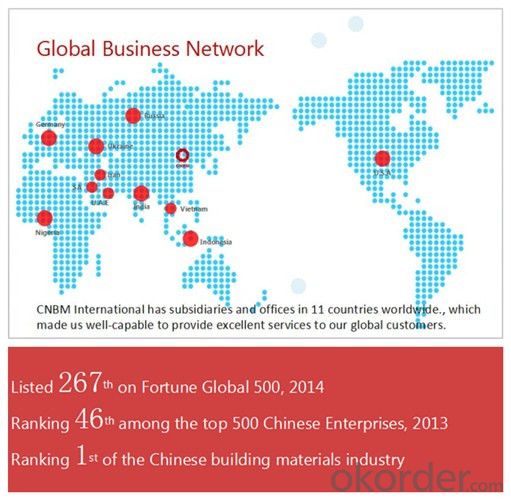
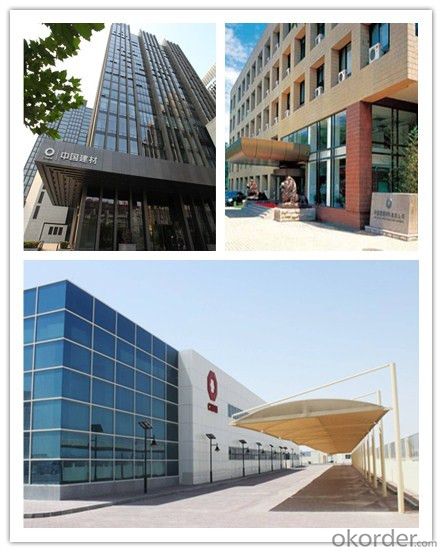
Packaging & Delivery of the Grade JIS G3141-SPCD-SD Galvanized Steel Coil
Packaging Detail | Sea worthy packing /as per customer's packing instruction |
Delivery Detail | 15 ~ 40 days after receiving the deposit |
Products Show:
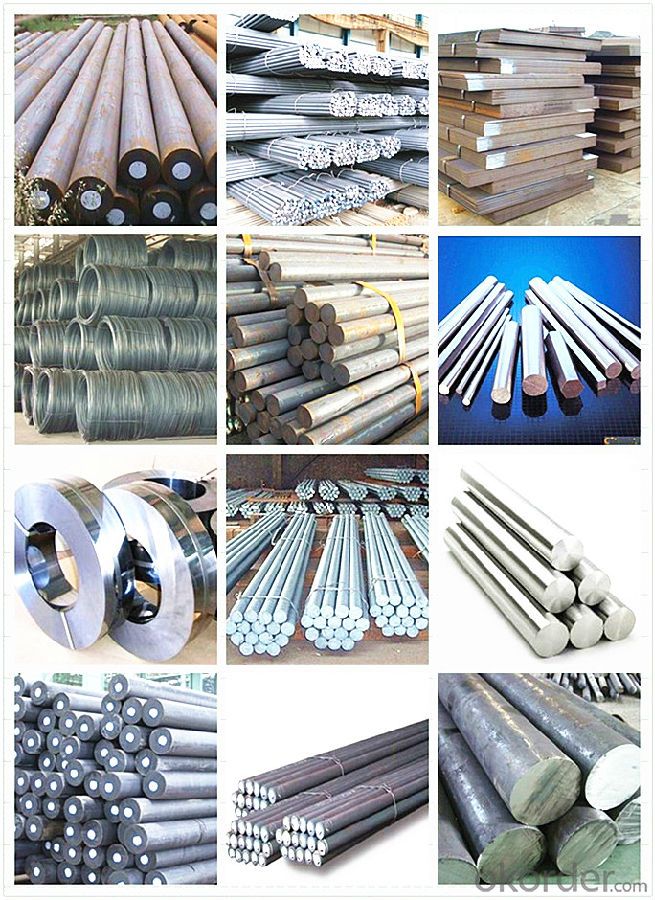
FAQ:
Are you a trading company or manufacturer? | Manufacturer |
What’s the MOQ? | 3 metric ton |
What’s your delivery time? | 15-35 days after downpayment received |
Do you Accept OEM service? | Yes |
what’s your delivery terms? | FOB/CFR/CIF |
What's the Payment Terms? | 30% as deposit,70% before shipment by T/T |
Western Union acceptable for small amount. | |
L/C acceptable for large amount. | |
Scrow ,Paybal,Alipay are also ok | |
Why choose us? | Chose happens because of quality, then price, We can give you both. Additionally, we can also offer professional products inquiry, products knowledge train (for agents), smooth goods delivery, excellent customer solution proposals. |
What's your available port of Shipment? | Main Port, China |
What’s your featured services? | Our service formula: good quality+ good price+ good service=customer's trust
|
Where are your Market? | Covering more than 160 countries in the world |
- Q: What are the advantages of using special steel in manufacturing?
- There are several advantages of using special steel in manufacturing. Firstly, special steel offers a higher level of strength and durability compared to regular steel. This is due to the presence of various alloying elements such as chromium, nickel, and manganese, which enhance the material's mechanical properties. As a result, special steel can withstand heavy loads, resist wear and tear, and endure extreme conditions, making it an ideal choice for manufacturing applications that require high strength and longevity. Secondly, special steel provides excellent corrosion resistance. The addition of alloying elements like chromium forms a protective oxide layer on the surface of the steel, preventing it from rusting or corroding when exposed to moisture or harsh environments. This corrosion resistance is crucial in industries such as marine, automotive, and construction, where the materials are constantly exposed to water, salt, and chemicals. Furthermore, special steel offers exceptional heat resistance and heat transfer properties. These properties are crucial in manufacturing processes that involve high temperatures, such as forging, casting, and heat treatment. Special steel can retain its strength and structural integrity even at elevated temperatures, allowing manufacturers to produce components that need to withstand extreme heat conditions. Another advantage of using special steel in manufacturing is its versatility. Special steel can be easily customized and tailored to meet specific requirements. It can be modified to exhibit various mechanical properties, such as hardness, toughness, or flexibility, depending on the application. This flexibility allows manufacturers to develop components with precise characteristics, ensuring optimal performance and efficiency. Lastly, special steel is often more cost-effective in the long run. Although the initial costs of special steel may be higher than regular steel, its superior durability and longevity result in reduced maintenance and replacement costs. Additionally, the enhanced properties of special steel can lead to improved energy efficiency and reduced material waste, contributing to overall cost savings in the manufacturing process. In conclusion, the advantages of using special steel in manufacturing include increased strength and durability, excellent corrosion resistance, superior heat resistance, versatility, and long-term cost-effectiveness. These benefits make special steel a preferred choice for various industries, ensuring the production of high-quality and reliable components.
- Q: Can special steel be used for making power generation equipment?
- Yes, special steel can be used for making power generation equipment. Special steels are specifically designed to have enhanced properties such as high strength, corrosion resistance, heat resistance, and wear resistance. These properties make special steel suitable for use in demanding applications such as power generation equipment, which often operates under high temperatures and pressures. Power generation equipment, such as turbines, boilers, and generators, require materials that can withstand harsh operating conditions and deliver reliable performance over an extended period. Special steel grades, such as stainless steels, nickel-based alloys, and heat-resistant steels, are commonly used in the construction of power plants and power generation equipment. Stainless steels are frequently used in power generation due to their excellent corrosion resistance, which is crucial for equipment exposed to high moisture or aggressive environments. Nickel-based alloys are renowned for their exceptional high-temperature strength, making them ideal for components subjected to extreme heat, such as turbine blades or exhaust systems. Heat-resistant steels, on the other hand, are specifically designed to retain their mechanical properties at elevated temperatures, making them suitable for applications such as boilers and heat exchangers. In summary, special steel offers a range of desirable properties that make it highly suitable for manufacturing power generation equipment. Its strength, corrosion resistance, heat resistance, and wear resistance make it an excellent choice for withstanding the demanding conditions found in power plants and ensuring the reliable and efficient generation of electricity.
- Q: How does special steel contribute to the tool manufacturing industry?
- The tool manufacturing industry greatly relies on special steel, as it offers numerous benefits that enhance the quality, performance, and durability of tools. First and foremost, special steel is widely recognized for its exceptional strength and toughness, making it an ideal choice for producing top-notch tools that can endure heavy usage and extreme conditions. Furthermore, special steel boasts excellent wear resistance. Tools crafted from special steel can maintain their sharpness and cutting edge for extended periods, reducing the need for frequent sharpening or replacement. This not only saves time and effort but also boosts productivity in industries heavily reliant on tools, such as construction, automotive, and aerospace. Additionally, special steel can be heat-treated to achieve specific properties, including hardness, which is crucial for tools like drills, saws, and blades. This heat treatment process enables manufacturers to tailor the characteristics of the steel to meet the unique requirements of different tools, ensuring optimal performance and effectiveness. Moreover, special steel provides corrosion resistance, a vital feature for tools exposed to moisture, chemicals, or harsh environments. By preventing rust and corrosion, special steel helps prolong the lifespan of tools, reducing maintenance costs and ensuring consistent performance over time. Furthermore, the versatility of special steel allows manufacturers to create tools with intricate shapes and designs. This flexibility opens up possibilities for innovation and the development of specialized tools catering to specific applications and industries. Special steel can be easily machined, welded, and formed into various tool designs, enabling manufacturers to produce efficient and ergonomic tools that offer improved handling and user comfort. In conclusion, special steel plays a significant role in the tool manufacturing industry by providing strength, wear resistance, heat treatability, corrosion resistance, and versatility. These properties facilitate the production of high-quality tools that are durable, reliable, and efficient, meeting the demands of diverse industries and enhancing productivity.
- Q: How is special steel made?
- Special steel is made through a process called alloying, where different elements are added to iron to enhance its properties such as strength, durability, and resistance to corrosion. This alloying process can include elements like chromium, nickel, vanadium, and manganese, among others. The exact composition and manufacturing process can vary depending on the desired characteristics and application of the special steel being produced.
- Q: How does special steel contribute to reducing product failures in high-stress applications?
- Special steel contributes to reducing product failures in high-stress applications by offering enhanced strength, durability, and resistance to wear and corrosion. Its unique composition and manufacturing processes ensure that it can withstand extreme conditions, such as high temperatures, pressure, and mechanical forces. Special steel also allows for precise engineering and design, enabling the production of components that can handle demanding environments without yielding or breaking. By utilizing special steel in high-stress applications, manufacturers can significantly decrease the likelihood of product failures, ensuring safer and more reliable performance.
- Q: How does special steel contribute to the manufacturing of surgical instruments?
- Special steel, which is also known as stainless steel, plays a vital role in the production of surgical instruments. Its exceptional properties make it an ideal material for manufacturing high-quality surgical instruments used in various medical procedures. To begin with, special steel exhibits a high resistance to corrosion and rust. Surgical instruments are constantly exposed to bodily fluids, sterilization processes, and harsh cleaning agents. The corrosion resistance of special steel guarantees the durability of these instruments, enabling them to withstand repeated use and cleaning without compromising their integrity. Furthermore, special steel possesses excellent strength and hardness characteristics. Surgical instruments must be robust and capable of withstanding the forces and pressures exerted during surgeries. The high strength and hardness of special steel ensure that these instruments retain their shape and sharpness even after multiple uses, minimizing the risk of breakage or deformation during critical procedures. Moreover, special steel is biocompatible, meaning it does not elicit reactions or complications when in contact with bodily tissues or fluids. This is particularly important for surgical instruments that come into direct contact with patients' bodies. The biocompatibility of special steel guarantees that there are no adverse reactions or complications when these instruments are used in surgeries, thereby reducing the risk of infections or other complications. In addition, special steel is highly machinable and can be easily molded into intricate shapes and designs. Surgical instruments require precision and accuracy to effectively fulfill their intended functions. The machinability of special steel allows manufacturers to create complex instruments with fine details and features, ensuring their optimal performance during surgical procedures. Furthermore, special steel can be efficiently sterilized. Sterilization is a critical step in ensuring the safety and effectiveness of surgical instruments. Special steel's ability to withstand high temperatures and various sterilization methods, such as autoclaving or ethylene oxide gas sterilization, makes it an ideal choice of material for surgical instruments. In conclusion, special steel significantly contributes to the manufacturing of surgical instruments due to its corrosion resistance, strength, biocompatibility, machinability, and sterilization capabilities. These properties guarantee that surgical instruments made from special steel are durable, reliable, safe, and effective in medical procedures, ultimately enhancing the success of surgeries and improving patient outcomes.
- Q: How does special steel perform in terms of high-temperature strength?
- Special steel typically performs very well in terms of high-temperature strength. It has excellent resistance to thermal fatigue, oxidation, and creep, allowing it to withstand extreme heat conditions without losing its structural integrity or mechanical properties. This makes special steel a preferred choice in applications where high-temperature strength is crucial, such as in the aerospace, power generation, and petrochemical industries.
- Q: What are the main factors affecting the corrosion fatigue strength of special steel?
- The main factors affecting the corrosion fatigue strength of special steel include the corrosive environment, the presence of aggressive substances, the level of stress applied, the frequency of stress cycling, and the microstructure and composition of the steel itself.
- Q: What are the different casting methods used for special steel?
- There are several different casting methods used for special steel, including sand casting, investment casting, continuous casting, and centrifugal casting. Each method has its own advantages and is suited for specific applications. Sand casting is a common and cost-effective method that involves pouring molten steel into a sand mold. Investment casting, on the other hand, uses a wax pattern that is coated in a ceramic shell and then melted away to leave a cavity for the steel to be poured into. Continuous casting is a continuous process where molten steel is poured into a water-cooled mold and solidifies into a continuous strand. Finally, centrifugal casting involves spinning a mold while pouring the molten steel, creating a centrifugal force that helps distribute the metal evenly. These different methods allow for the production of special steel components with various sizes, shapes, and properties.
- Q: How does special steel perform under low temperatures?
- Special steel performs well under low temperatures due to its high ductility, toughness, and resistance to brittleness. It retains its strength and structural integrity, making it ideal for applications in extreme cold environments such as cryogenic storage, sub-zero manufacturing, and Arctic exploration.
Send your message to us
Grade JIS G3141-SPCD-SD Galvanized Steel Coil
- Loading Port:
- Tianjin
- Payment Terms:
- TT OR LC
- Min Order Qty:
- 3 m.t.
- Supply Capability:
- 10000 m.t./month
OKorder Service Pledge
OKorder Financial Service
Similar products
Hot products
Hot Searches
Related keywords
